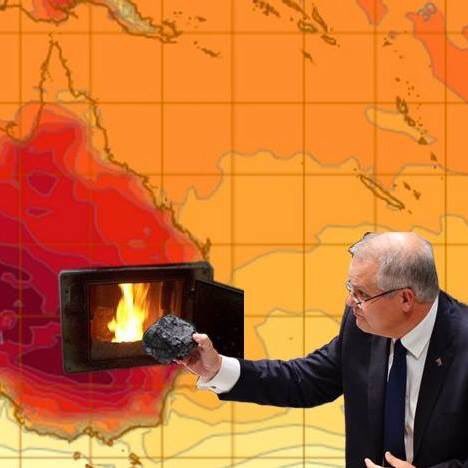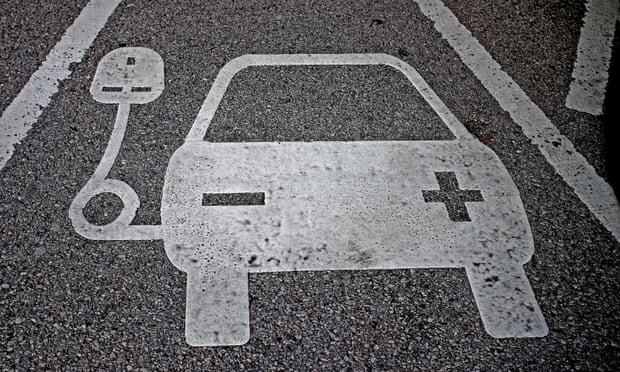This rail was the “high line”, a massive boondoggle that helped settle the northwest. The rail was built before the settlers; the 50 or so towns along the rail are named after surveyors, engineers, their wives, girlfriends and dogs. Once the high line was completed, the land was sold for farming in the east, at cheap rates to people who knew nothing about farming — or how frikkin cold the place was (Jonathan Raban’s great book Bad Land has this history). The frozen ground resisted the plough; people went broke, mad, there were suicides and family annihilations, farmhouses left standing unoccupied for decades.
Now, of course, it is starting to get warmer. The winters are shortening, the flowers come out early. The ground is loosening up. No one, as the dude on the platform said, has seen anything like it. And no one I dropped the conversational “warming-bomb” on will admit to, or even talk of the possibility of it.
This is something that many people have observed recently. Climate change denialism, which rose in power about 15 years ago, had appeared to be in retreat about five to seven years ago. Now it is returning, and in great strength. Climate change activists are dismayed by it, and also bewildered. The science has got stronger, the evidence more plentiful. Why has the public become, it seems, even more resistant to the notion that global industrial activity is warming the planet to at least a disastrous and potentially catastrophic degree?
The answer, quite simply, is that we are facing a new phase of climate change denialism, working off a different basis to the old. There is less stuff about fictional “pauses” in warming created by small time samples, albedo, urban heat islands … all the tendentious arguments of the Ian Plimers, and the late Bob Carter. There is now simply, among many people, a refusal to acknowledge it, or even accept it. Why? Because climate change science — pretty much all science — is now being enrolled in the great culture/class war that is consuming Western society, the brutal fight for recognition and position between the progressive-knowledge classes, and the working and middle classes, who now feel themselves to be excluded from the processes of power, wealth and legitimacy.
For many people in these classes — especially those whose worlds of meaning are being dissolved like, well, cowboys — it is not simply social science, gender policy, cultural studies, etc, that is the enemy. The enemy is now science itself, which is seen as the master’s discourse, and an instrument of class power by the other. We have moved past the post-WW II notion that science, having been applied to the defeat of fascism, could now be applied to the creation of the good society, creating interesting work, nice houses, curing disease and opening up opportunity for personal development. Knowledge workers were a small group, in service to a large society divided on traditional class lines.
Now knowledge workers are a ruling group, science and knowledge are an omnipresent discourse obscure to many; politics, and even economics, appear to have little role in shaping our society; and technology reconstructs our life world in a process of ceaseless revolution. Post-WW2, science was something curing TB, improving crop yields, and beating back drudgery. Now, the skeletal black-skivvied figures — Steve Jobs, Elon Musk — get up on stage to announce another revolution, and down the street another workplace closes down, the truck driver (the single most common occupation in the West) realises that driverless cars means driverless trucks, and so on and so on. Increasingly, the excluded classes see science as abstract, alien and oppressive. To counter this, they cleave to a form of knowledge that is concrete and mythical. In our era, that form of discourse is inevitably conspiratorial, turning impersonal and uncontrollable processes into known and authored ones. ...
Climate change activists have failed to consider this sufficiently, in large part because they do not want to think of themselves as the ruling class. They’re the insurgents, the new old new left, the social movements, the global anti-capitalist veterans. Us? We’re the privileged ones? That omission, and the failure to understand the way in which culture structures knowledge has led to several failures in climate change activism:
1. A lot of climate change activists, drawn from the humanities, have not bothered to learn the science. Or any science. Any climate change activist should understand atmospherics, basic CO2 chemistry, and the factors that are often cited as counter-forces to anthropogenic global warming: cloud/ice reflectiveness, carbon sinking in oceans, etc, etc, and the more complex excuses like the bogus warming pause. The most important thing any climate change activist can do right now, if they don’t know this science, is to drop everything and learn it. You should be able to answer any feeble objection simply, forthrightly and effectively. One of the most important things at this stage is to refuse people the permission to believe that there is any reasonable doubt about the existence of disastrous/catastophic global warming;
2. Climate change activists, and organisations, need to study and learn more effectively, the strategies and tactics built up over a century of socialist and radical campaigning, the different modalities of it. The most important campaigning you do isn’t going on the marches; it’s the conversation at the BBQ, the craft beer tasting, or the Killing Kittens orgy. But you have to know when to attack head on, and when to be more open and allusive; you have to have sequences of arguments in your head, but be genuinely responsive in the dialogue; you have to, above all, remove any notion of shaming, duty or moral superiority from the dialogue;
3. Activists and writers have to stop doing readable, luxurious evocative books, and start writing a few “flat ephemeral” pamphlets. Three decades into this campaign and crisis, and there is no single book/pamphlet to compare to Tom Paine’s Common Sense, The Communist Manifesto, Mao’s Four Essays, or the Gospel of St Matthew. Someone needs to write a short volume that — as book, ebook, app, wallposter, rap song — combines the basic science with what basically needs to be done, showing, actually, how little disturbance there could be to global growth, and what a boon to global retooling action on climate change would be: connect the revival of Western economies to the greening of them; and
4. There is still no single volume that, chapter by chapter, takes apart the climate change denialists (if there is, and I’ve missed it, I’m welcome to be informed of it). There’s thousands of blogs, chatgroups, etc, etc, doing so. The failure of anyone with the necessary knowledge to sit down, and at 20 pages a go, eviscerate all denialist positions, from the mad denial of the second law of thermodynamics, to Lomborg-esque evasions, is simply a testament to the arrogance and self-indulgence of geeks. Yes, a 200 post thread on recalibrating heat islands using a modified Poisson distribution multiplier (I made that up), is fascinating, and the denialists are tiresome, repetitive, obsessive, and usually wrong on page 1, thus invalidating pages 2 through 500 of their books. But this has to be shown. And once again it has to be shown in such a way that arms people for the fight that I’ve sketched out above.
















/cdn0.vox-cdn.com/uploads/chorus_asset/file/7908553/main.png)









